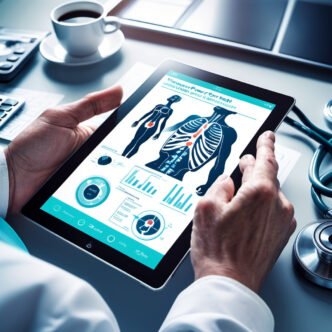Introduction to Technology
Technology is an integral part of our lives, shaping how we communicate, work, learn, and interact with the world around us. At its core, Technology refers to the use of scientific knowledge for practical purposes. Includes tools, systems, and methods that enhance human capabilities and solve complex problems.
From the invention of the wheel to the achievements of the digital age, technology has been instrumental in human development. This essay explores the concept of technology, its different types, its historical significance, and its impact on modern society.
Evolution of technology
Early start
The roots of technology can be traced back to prehistoric times when early humans used primitive tools to hunt and gather food. These early inventions viz Stone tools, and wheels, marked the beginning of technological innovation, allowing humans to survive and thrive.
industrial revolution
18th century saw the sunrise of the Industrial Revolution, a transition period characterized by the transition from manual labor to mechanized production. Key innovations viz The steam engine, the spinning genie, and the power loom Revolutionized industries and laid the foundation for modern manufacturing processes.
The digital age
Introduced in the late 20th century. The digital revolution bringing significant advances in electronics, computing, and telecommunications. The invention of the microprocessor, the rise of the Internet, and the proliferation of mobile devices It has transformed every aspect of human life, connecting people globally and fostering innovation.
Types of technology
Information Technology (IT)
Covers information technology. Computers, Software,e, and Networks are Used to process, store, re, and exchange information. It is the backbone of modern communications and business operations, enabling the development of technologies such as cloud computing, artificial intelligence, and data analytics.
Medical technology
I advance Medical technology It has revolutionized healthcare, improving diagnosis, treatment, and patient care. Examples are included. MRI machines, robotic surgery, wearable health devices, and telemedicine platforms.
Energy Technology
Focuses on energy technology. Development of sustainable and efficient energy sources, like Solar panels, wind turbines, and battery storage systems. These innovations are critical to combating climate change and reducing dependence on fossil fuels.
Transportation Technology From electric vehicles to autonomous cars and high-speed trains, transportation technology has redefined mobility, making it faster, safer, and more environmentally friendly.
Communication Technology
Communication technology, including Smartphones, social media platforms, and video conferencing tools, has reshaped how people interact and share information around the world.
Impact of technology on society
Economic development
Enabling technology drives economic growth. Innovating, improving productivity, and creating new industries. Automation and artificial intelligence are changing traditional jobs while creating opportunities in emerging sectors.
Teaching and learning
Digital tools and online platforms have revolutionized education. Accessible and flexible learning opportunities. Students can now access a wide range of resources, participate in virtual classrooms, and acquire skills through e-learning programs.
Health care development
Medical technology has extended human life expectancy and improved the quality of life. Innovations like Personalized medicine, gene therapy, and advanced diagnostics address previously untreatable conditions.
Environmental sustainability
Green technologies are playing an important role in addressing environmental challenges. Renewable energy and smart grid technologies are helping to reduce the effects of climate change.
Challenges and Ethical Considerations
Despite its benefits, the technology also presents challenges, including privacy concerns, cybersecurity threats, and the digital divide. Ethical considerations, such as artificial intelligence, require careful regulation and oversight.
Future trends in technology
The future of technology holds immense potential for innovation and change. Emerging trends include:
- Artificial Intelligence (AI): AI is expected to revolutionize industries with advances in machine learning, natural language processing, and robotics.
- Quantum computing: Quantum technology promises unprecedented computational power, solving complex problems in fields such as cryptography and material science.
- Biotechnology: Innovations in biotechnology, such as CRISPR and synthetic biology, are paving the way for medical and agricultural applications.
- Space exploration: Advances in space technology are making missions to Mars and beyond possible, with private companies like SpaceX leading the way.
The result
Technology is a dynamic and ever-evolving field that shapes our world in profound ways. By harnessing its potential responsibly, we can tackle global challenges, improve quality of life, and create a sustainable future.













